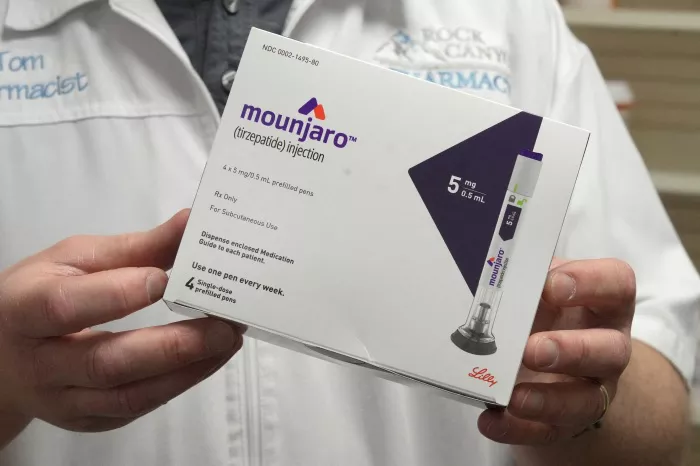Skin allergies and itching are common issues that affect people of all ages. Whether it’s caused by an allergic reaction to certain substances, environmental factors, or skin conditions, managing skin irritation effectively is crucial for comfort and health. This article explores the causes of skin allergies and itching, common symptoms, and various treatment methods. The focus will be on both medical and at-home remedies that can alleviate discomfort and prevent future flare-ups.
Understanding Skin Allergies
Skin allergies occur when the immune system overreacts to a substance that is typically harmless to the body. These substances, called allergens, can include foods, medications, plants, or even dust mites. When the body encounters these allergens, it triggers an immune response, causing the skin to react with symptoms like redness, swelling, rashes, or itching.
The most common causes of skin allergies are:
Contact Dermatitis: This happens when the skin comes into direct contact with an allergen, such as certain soaps, cosmetics, or plants like poison ivy. The skin becomes irritated and inflamed.
Atopic Dermatitis (Eczema): This chronic condition often runs in families and leads to dry, itchy skin, usually in response to allergens such as pet dander or dust mites.
Urticaria (Hives): These raised, red, itchy welts appear on the skin as a result of an allergic reaction, often triggered by food, medication, or stress.
Drug Reactions: Certain medications can cause allergic reactions that result in rashes or itching.
Food Allergies: Some people may develop skin reactions like hives or swelling after consuming certain foods, including nuts, shellfish, or dairy.
Understanding the underlying cause of the allergic reaction is essential in selecting the right treatment.
Symptoms of Skin Allergies and Itching
The symptoms of a skin allergy can vary from mild to severe. Common symptoms include:
Itching: A common symptom of skin allergies, itching may range from mild irritation to intense discomfort. It is usually one of the first signs of an allergic reaction.
Rashes: Red or blotchy skin may develop, often in a specific pattern, depending on the allergen.
Swelling: In more severe reactions, areas of the skin may swell, particularly around the eyes, lips, or hands.
Blisters: In cases of contact dermatitis or severe allergic reactions, small fluid-filled blisters may form on the skin.
Dryness and Flakiness: When the skin reacts to allergens, it may lose moisture and become dry, cracked, or flaky.
Recognizing these symptoms early can help in preventing the condition from worsening.
Treatment for Skin Allergies and Itching
There are numerous treatment options for managing skin allergies and itching. These treatments can range from over-the-counter (OTC) remedies to professional medical interventions. Here, we discuss some of the most effective methods to manage these conditions.
Over-the-Counter (OTC) Remedies
For mild cases of skin allergies, OTC treatments can often provide immediate relief. These remedies typically include antihistamines, corticosteroid creams, and moisturizers. Let’s take a closer look at some of the most common OTC treatments.
Antihistamines
Antihistamines are often used to treat itching and swelling associated with allergic reactions. They work by blocking histamine, a chemical in the body that causes allergy symptoms. Some antihistamines, like diphenhydramine (Benadryl), can make you drowsy, while others, like loratadine (Claritin), are non-drowsy.
Corticosteroid Creams
Corticosteroid creams are effective in reducing inflammation and itching. These creams work by suppressing the immune response that causes skin irritation. It’s essential to use corticosteroids as directed, as prolonged use can lead to thinning of the skin. For mild allergies, a low-potency corticosteroid may be sufficient, but more severe reactions may require stronger options prescribed by a healthcare professional.
Moisturizers
Dry skin is a common issue with skin allergies, and keeping the skin moisturized can help alleviate itching and discomfort. Using a fragrance-free, hypoallergenic moisturizer after bathing can help to lock in moisture and create a protective barrier on the skin.
Topical Treatments for Severe Reactions
In some cases, OTC treatments may not be sufficient, and stronger topical treatments may be needed. Here are a few options that a doctor might recommend:
Prescription Corticosteroids
For more severe skin reactions, a healthcare provider may prescribe a stronger corticosteroid cream or ointment. These prescriptions are generally stronger than the OTC versions and are used for more intense flare-ups.
Topical Calcineurin Inhibitors
Topical calcineurin inhibitors, such as tacrolimus (Protopic) and pimecrolimus (Elidel), are non-steroidal creams used to treat skin inflammation. These are often recommended for conditions like eczema and are less likely to cause skin thinning.
Oral Medications
When skin allergies and itching are particularly severe, oral medications may be required. These are typically prescribed by a healthcare professional after evaluating the specific needs of the patient.
Oral Antihistamines
Oral antihistamines, such as cetirizine (Zyrtec) and fexofenadine (Allegra), can provide long-lasting relief from itching and swelling. They are typically used for widespread allergic reactions, including hives or generalized rashes.
Corticosteroids
In some cases, oral corticosteroids like prednisone may be prescribed to reduce inflammation and control allergic reactions. These are typically reserved for more severe reactions and are usually taken for short periods to avoid side effects.
Home Remedies and Lifestyle Changes
While medical treatments can be very effective, there are also several home remedies and lifestyle changes that can help manage skin allergies and itching. These remedies are often used in combination with prescribed treatments to enhance relief.
Cold Compress
Applying a cold compress to the affected area can help soothe itching and reduce swelling. This is a simple, non-invasive method that can provide immediate relief for itchy skin.
Oatmeal Baths
Oatmeal has natural anti-inflammatory properties that can help calm irritated skin. Adding colloidal oatmeal to a warm bath can help reduce itching and moisturize the skin. Be sure to avoid hot water, as it can further dry out the skin.
Aloe Vera
Aloe vera is known for its soothing properties and can be applied to the skin to reduce irritation. Using fresh aloe vera gel or an aloe vera-based product can help to cool and moisturize the skin.
Avoiding Triggers
If you know the specific triggers that cause your skin allergies, avoiding them can significantly reduce the frequency and severity of flare-ups. This might mean avoiding certain foods, staying away from specific plants, or using gentle skin care products that are hypoallergenic.
When to Seek Medical Help
While most skin allergies and itching can be managed with over-the-counter treatments and home remedies, there are times when it’s important to seek medical attention. You should consult a healthcare provider if:
The allergic reaction is severe, with significant swelling or difficulty breathing.
The rash or itching doesn’t improve with treatment.
The skin condition appears infected (e.g., pus-filled blisters, increased redness).
You experience a widespread rash or severe itching that interferes with daily activities.
Preventing Skin Allergies and Itching
Prevention is always better than cure, especially when it comes to managing skin allergies. Here are some steps you can take to reduce the risk of developing skin allergies or minimize flare-ups:
Use Gentle, Hypoallergenic Skin Care Products: Choose skin care products that are free from harsh chemicals and fragrances, as these can irritate sensitive skin.
Moisturize Regularly: Keeping the skin hydrated is one of the best ways to prevent dryness and irritation. Use a fragrance-free moisturizer daily.
Protect Your Skin from Allergens: If you have known allergies, take steps to avoid allergens. For instance, if you are allergic to pollen, try to stay indoors on high-pollen days.
Wear Protective Clothing: When exposed to potential allergens like poison ivy or certain chemicals, wear protective clothing, such as gloves or long sleeves.
Maintain a Healthy Diet: A balanced diet rich in antioxidants, vitamins, and minerals can help maintain healthy skin. Avoid known food allergens if you have food sensitivities.
Conclusion
Skin allergies and itching can be uncomfortable and disruptive, but with the right treatment and preventive measures, most people can find relief. By understanding the causes and symptoms of skin allergies, using appropriate treatments, and incorporating lifestyle changes, you can manage the condition effectively. Always consult a healthcare provider if the symptoms are severe or persistent, as professional guidance is essential for long-term management and relief.
Related Topics
































